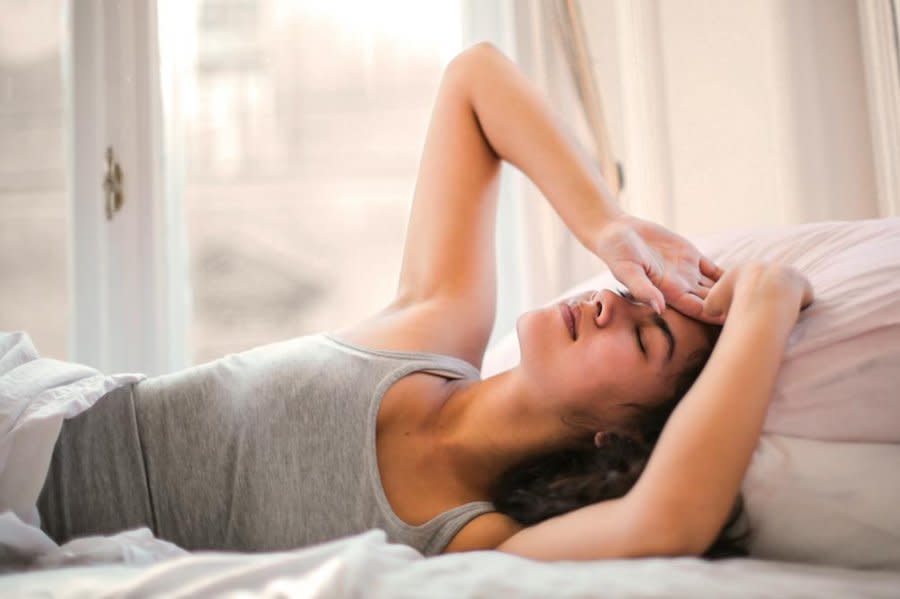More than three-fourths of recovering COVID-19 patients left with insomnia, study finds

Feb. 2 (UPI) -- A new Vietnamese study published Monday has found that COVID-19 greatly raises the risk of insomnia, particularly among those suffering from anxiety or depression.
Sleep researchers at Phenikaa University in Hanoi found that while most patients with COVID-19 not requiring hospitalization make quick recoveries from the infection, 76.1% of 1,056 adults surveyed who had the virus in the previous six months reported being left with difficulty sleeping, according to a news release.
The results, published in the journal Frontiers in Public Health, indicate that almost one-fourth (22.8%) of those reporting sleep problems said the condition was severe, half woke more often in the night and one-third said that they found it harder to fall asleep, slept worse and slept for less time.
The researchers were unable to establish a clear correlation between the severity of participants' COVID-19 bout and the severity of the insomnia that developed.
However, people who scored highly for depressive or anxious symptoms and those with a pre-existing chronic condition had statistically higher rates of insomnia than the rest of the sample. When the scientists focused in on patients who reported insomnia, their depression and anxiety scores exceeded the average scores of the group overall.
"As a sleep researcher, I received many questions and complaints from relatives, friends and colleagues about their sleep disturbances after recovering from COVID-19," said lead author Dr. Huong T. X. Hoang of Phenikaa University.
She said was prompted to delve deeper into the conundrum after finding the majority of the studies looking at insomnia and COVID-19 focused on hospitalized patients and therefore were of little help.
"The environment of their treatment and quarantine would differ greatly from those with milder symptoms," Hoang said.
The online survey between June and September 2022 collected data on age, sex and chronic conditions, and the duration and severity of patients' COVID-19 infection. It also asked about symptoms of anxiety, stress and depression.
To investigate levels of insomnia, patients were asked to compare how well they slept, for how long and how easy it was to fall asleep in the last two weeks, compared with before getting COVID-19.
"If you experience insomnia after COVID-19, don't think that is normal," urges Hoang. "If insomnia does not bother you too much, you can take some simple actions, such as taking a warm shower before bedtime, shutting your phone down at least one hour before going to bed, doing 30 minutes of exercise per day and avoiding caffeine after 4 p.m.
"If insomnia really troubles you, you can try some over-the-counter sleep aids. If they don't help, go see a sleep therapist."
The scientists stressed that the insomnia levels they found were not only well above those in the general population, but higher than that for hospitalized COVID-19 patients, although they speculated this may have been due to survey participants' lingering symptoms.
Researchers noted that recently recovered patients may be more stressed in general and more attuned to changes in health, resulting in them perceiving their sleep as being not as good as before.
The team also warned that the methodology employed by the study meant that the insomnia-mental health linkage was not conclusive.
"Since this is a cross-sectional study, the relationship of anxiety and depression with insomnia cannot be fully investigated," Hoang said.
"In addition, collecting data online and a convenience sampling method can cause recall bias and selection bias. However, due to the situation in Vietnam at that time, collecting data via electronic invitation and convenience sampling was the most efficient and feasible strategy."
The scientists called for an integrated approach to dealing with the gamut of factors contributing to insomnia and further study of the relationship between COVID-19, mental health and insomnia.

